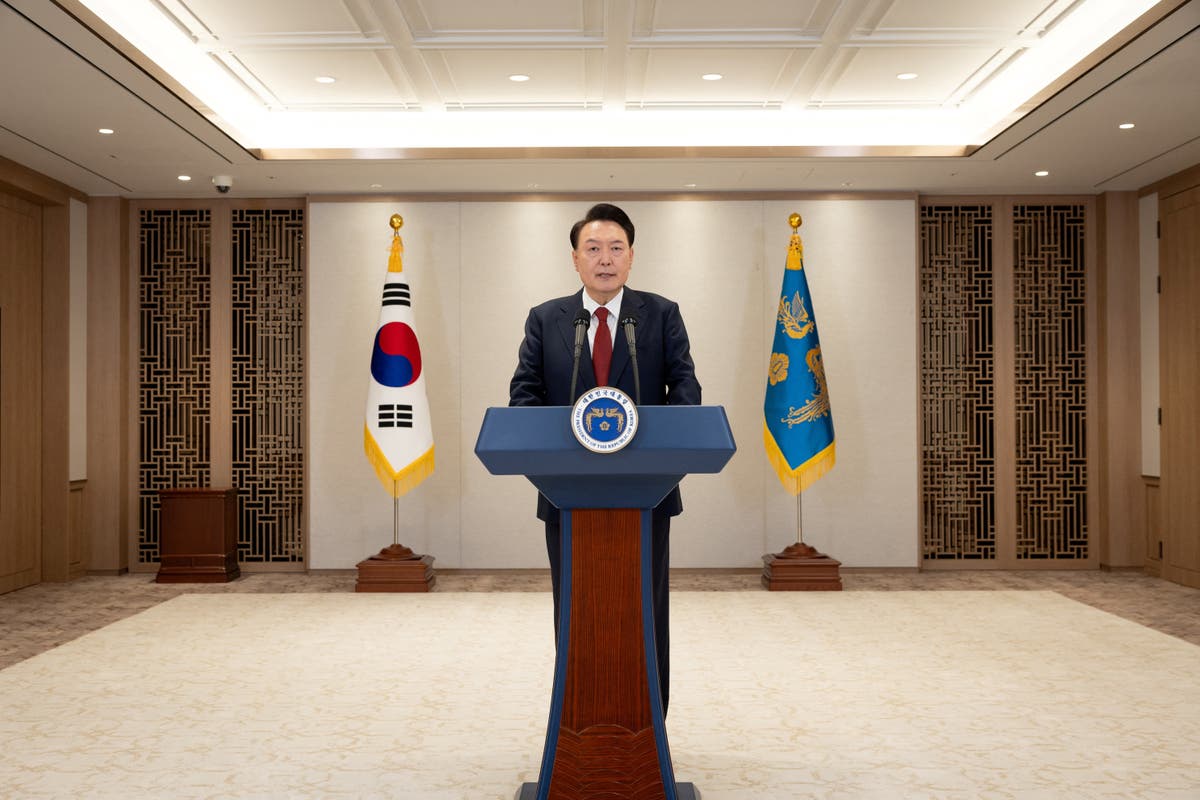South Korean president Yoon Suk Yeol has defended his recent declaration of martial law, framing it as a necessary move to safeguard the nation’s democracy.
Facing mounting public protests and impeachment attempts, he vowed on Thursday to remain in office despite allegations of rebellion and insurrection.
“I will fight to the end,” Mr Yoon declared in a televised address, “to prevent the forces and criminal groups that have been responsible for paralysing the country’s government and disrupting the nation’s constitutional order from threatening the future of the Republic of Korea”.
The embattled president’s remarks came just hours before the liberal Democratic Party submitted a fresh impeachment motion against him, accusing him of overstepping his authority.
Mr Yoon, however, insisted that his actions were lawful, claiming his decision was aimed at countering what he described as a “parliamentary dictatorship” by the opposition.

Meanwhile, South Korea’s ruling party on Thursday picked Kweon Seong-dong, a veteran politician close to President Yoon, as its new floor leader. After being elected, Mr Kweon said he will prepare for “a presidential election that could possibly be soon held”.
The controversy erupted on 3 December when Mr Yoon invoked martial law, deploying fewer than 300 soldiers to the National Assembly.
He argued the move was intended to maintain order and prevent the opposition from derailing the democratic process. However, critics have labelled it an assault on constitutional governance, leading to political chaos and widespread protests demanding his removal.
Earlier this week, Mr Yoon’s former defence minister was arrested for allegedly orchestrating the martial law plan and abusing his power.
Prosecutors have also accused Kim Yong Hyun, ousted defence minister, of advising the president to deploy troops to block parliamentary votes on the decree. Mr Kim, currently in custody, reportedly attempted to take his own life but was stabilised after intervention by detention centre officials.
Despite widespread criticism, Mr Yoon dismissed accusations that his actions amounted to rebellion, labelling the opposition party “anti-state forces” and a “monster” threatening South Korea’s constitutional framework.
“The opposition is now doing a knife dance of chaos, claiming that the declaration of martial law constitutes an act of rebellion. But was it really?” he questioned during his address.

Opposition lawmakers, who hold a majority in parliament, have vowed to push for Mr Yoon’s impeachment with weekly motions until he is removed from office. Their initial attempt last weekend was thwarted when members of the ruling party boycotted the vote. This week, however, Han Dong Hoon, leader of Mr Yoon’s own conservative party, openly called on party members to support the impeachment effort, saying it had become clear the president would not step down voluntarily.
If the impeachment motion passes, the case would move to South Korea’s constitutional court, where a two-thirds majority would be required to permanently remove Mr Yoon from office.
Since losing control of parliament in a landslide election earlier this year, Mr Yoon’s administration has struggled to push its agenda, relying instead on vetoing opposition-proposed legislation. His martial law decree, however, has heightened the political crisis, with many questioning the future stability of the country’s democracy.
As the president faces intensifying calls to resign, he maintained he would not evade accountability. “I will not avoid my legal and political responsibilities,” he stated, indicating a prolonged battle ahead in South Korea’s escalating political turmoil.
Additional reporting by agencies




